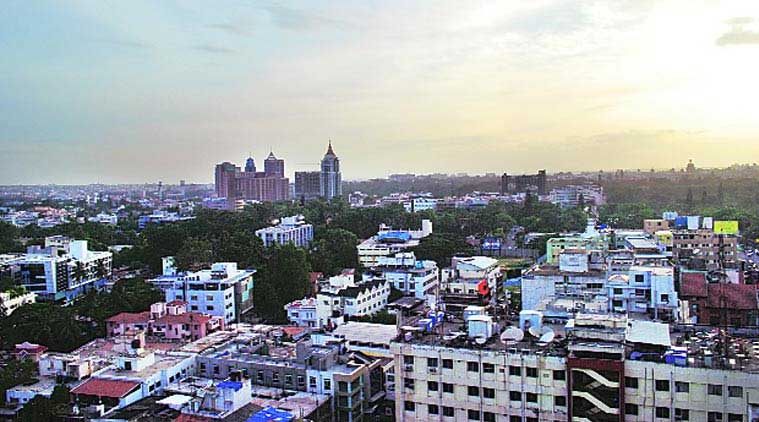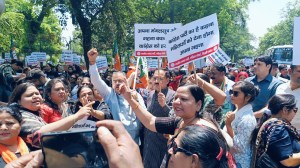- India
- International
Fifth Metro: Coming to terms with modernity
Sections of society are still unable to keep pace with rapid changes in urban Indian life.
 Many classes have not come to terms with the new meaning of relationships in modern India.
Many classes have not come to terms with the new meaning of relationships in modern India.This is Bangalore and it is 2015. When Microsoft employee Debjani Mukherji applied for a passport renewal recently, she came face-to-face with a surprising side to Bangalore, arguably India’s most modern city. The full details of the episode unfolded in the local media to all-round distress. In this India, should such attitudes simmer up every so often in those holding positions of authority, many fellow Bangaloreans wondered?
It started like this. Seeing that her passport was due to expire in a few months, Mukherji went to a nearby passport kendra and completed the formalities. She had moved to the city only last year from Hyderabad and so her renewal required police verification — a standard procedure when an address change is involved. Mukherji thought there was little to it as, only months before, her husband Krishnan (the two married late last year) had got his passport renewed with the address of the home he had bought last year. Mukherji’s name figured in the spouse’s column in Krishnan’s new passport.
However, when it came to her own passport, Mukherji was summoned multiple times to the city’s Kadugodi police station. The mystery over the repeated summons was revealed when the policeman probed her address proof. She had moved to Bangalore and had been living at Krishnan’s address since March last year. But her marriage certificate showed that the two wed in October. When Mukherji told the policeman that she had been living in with Krishnan in the months prior to their wedding, he replied, “That is not possible.” He sent her off to another office to explain the “discrepancy”.
Days later, Mukherji received an SMS alert from the passport authorities that her renewal application was denied as the police had filed an “adverse report” on her address proof. Clearly, the policeman’s biases had surfaced in his professional life. “Why should the police be concerned whether I live-in with my boyfriend or how I live? Those in a position of power should not allow their attitudes to colour their work,” said Mukherji.
Mukherji’s passport renewal scrape is to end soon, after the intervention of the city’s police commissioner. But outpourings on social networks and in the media illustrate that such incidents are all too common. Media recently highlighted the huge signboard outside a large residential apartment complex located near the well-known Christ College. Many college students rent flats there. “Girlfriends not allowed,” reads the notice at the entrance. Security guards at the complex told a TV channel that, on the building committee’s orders, they take away college ID cards of female students entering the building. The women are promptly banished after half an hour.

Outpourings on social media highlight the frequent nature of such encounters. In a recent post on her timeline, Saritha Hegde, the Bangalore-based senior VP of a global sourcing firm, recounted a recent routine visit to her gynaecologist at a prominent Bangalore hospital. During the exam, the lady doctor asked her if she was single. When Hegde replied in the affirmative, the doctor further inquired if she was sexually active. The questions were of the standard variety and Hegde again replied, Yes. But the doctor’s reaction was unexpected. “Please get yourself tested for AIDS,” the doctor instructed. Hegde said she had to quell the urge to tell the doctor that most female AIDS sufferers in India are married women who got the disease from their husbands.
Staff at institutions like the police, hospitals and government offices need to be sensitised not to judge women for the choices they make. “I am a paying customer at the hospital, I didn’t go there for a free morality lesson from the doctor,” said Hegde.
Such incidents stem out of the rapid nature of social change in Indian cities, explained G.K. Karanth, a national fellow at the Indian Council for Social Science Research and a former professor at Bangalore’s Institute for Social and Economic Change. “Even though we tend to take it for granted, the change has not percolated through all layers of society, what is visible to us is only the upper layer,” he said. The paradox of “un-change” explains many incidents in India, including the horrific Nirbhaya rape episode, Karanth said.
In the case of the passport renewal, Karanth said that to the police constable, a man and woman living together without marrying would amount to “running away from their families” or some such dramatic development. “Many classes have not come to terms with the new meaning of relationships in modern India,” Karanth said.
saritha.rai@expressindia.com
EXPRESS OPINION
More Explained
Apr 24: Latest News
- 01
- 02
- 03
- 04
- 05










































